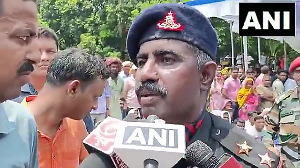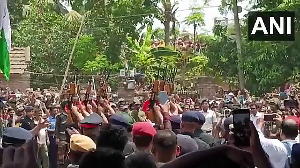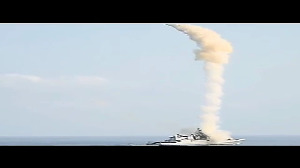The borders of Jammu and Kashmir with Pakistan should be 'softened' to normalise the situation in the strife-torn state, Chief Minister Mufti Mohammed Sayeed said on Monday.
After a 30-minute meeting with Deputy Prime Minister Lal Kishenchand Advani in New Delhi, Sayeed said, "When such a proposal can be considered for Rajasthan and Sindh (in Pakistan), why can't the same be considered for our state? This will only increase the pace of normalisation."
Sayeed advocated open borders to facilitate interaction between several divided families in the state. He said this will increase trading activities in the state.
To a question whether infiltration in the state had come down, Sayeed said he did not have specific figures.
He, however, pointed out the mindset of the people in J&K was changing drastically towards restoration of peace and normalisation. "People in the state have understood that violence is no answer to any problem and they are praying to almighty for complete normalisation of the situation," he said.
About repeated statements of Pakistan Prime Minister Zaffarullah Khan Jamali on Kashmir, Sayeed said, "Both India and Pakistan have a stated position on Kashmir. We can only hope that both the countries attempt to solve all issues bilaterally."
During his meeting with Advani, Sayeed discussed several issues, including the situation in the state with special emphasis on the employment package announced by Atal Bihari Vajpayee on April 19.
Under the package, 200,000 jobs would be created in the state. A task force to this effect has already been constituted and it is scheduled to submit its report before August 15 this year. Cabinet Secretary Kamal Pande has been asked to monitor the package, official sources said.
Sayeed also requested Advani to pass a directive asking other ministries and institutions to hold conferences in Jammu and Kashmir. "This will definitely give a major boost to tourism in the state," Sayeed said in the meeting, which was also attended by Union Home Secretary N Gopalaswamy.







 © 2025
© 2025